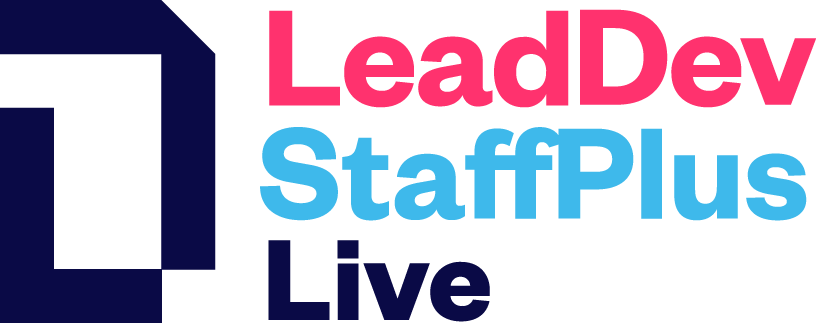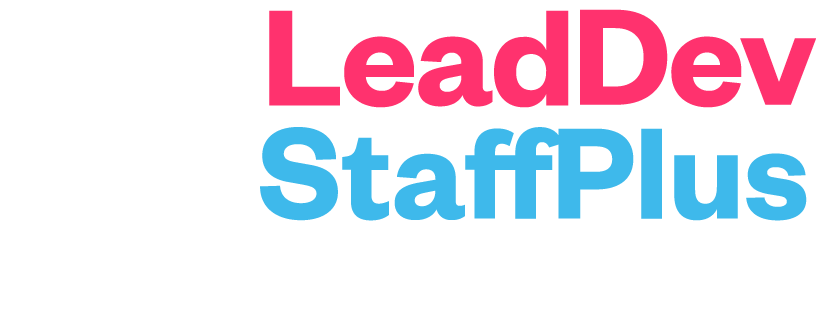Schedule
Talks, interviews, panels, and demosCheck out the sessions for all three tracks.

The live event has finished
But we'll be publishing videos of all sessions soon! Make sure you're subscribed to our newsletter so you don't miss out.
WELCOME
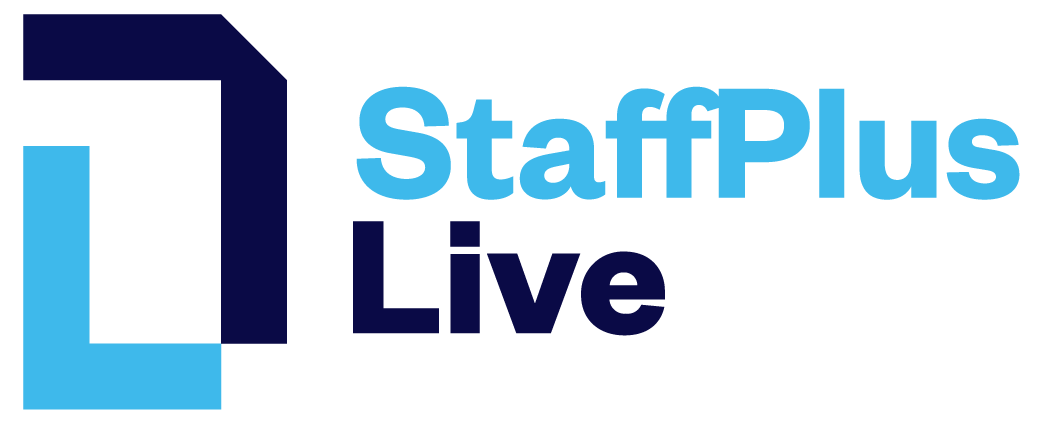
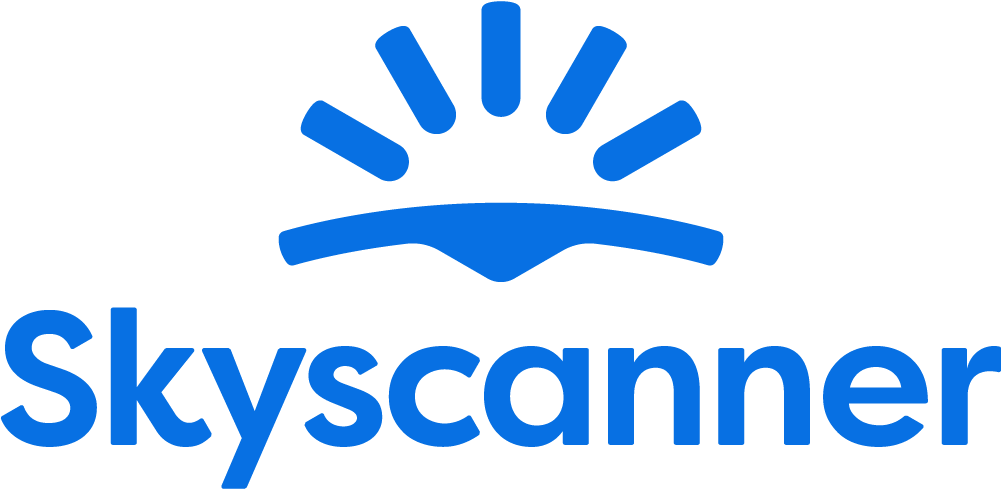
Welcome to StaffPlus Live
A welcome to StaffPlus Live from your hosts Tanya Reilly and Blanca Garcia Gil.
Role and Influence: The IC trajectory beyond Staff
As you become an increasingly senior IC, subtle changes in the scope of your role shape the kinds of influence you can have and are expected to have
Role and Influence: The IC trajectory beyond Staff
As you become an increasingly senior IC, subtle changes in the scope of your role shape the kinds of influence you can have and are expected to have. Mapping out these changes through a few different lenses can help you identify which of the various options you actually wish to seek out, and think about how you want to plan your future career.

Yonatan has been building chunks of the Internet for the past twenty years, including heading infrastructure projects like high-capacity search and planet-scale storage at Google; consumer products, as Google’s Chief Architect of Social and as head of infra for the Google Assistant; and over a decade’s deep work on security, privacy, and abuse. Today he’s Distinguished Engineer at Twitter, trying to improve the conversational infrastructure of people’s lives.
View Yonatan's LeadDev articles and talksFeaturing:


What is senior IC? Flavours of technical leadership
Although the Senior IC ladder is starting to become more defined why aren’t more people talking about this shift, and what does leadership actually look like as Senior IC?
What is senior IC? Flavours of technical leadership
Although the Senior IC ladder is starting to become more defined, what being ‘staff’ or ‘principal’ is still varies greatly from company to company. And just like stepping into management, deciding to move from Senior to Staff or from Staff to Principal changes the day-to-day work and expectations placed on ICs. And so why aren’t more people talking about this shift, and what does leadership actually look like as Senior IC?
In this panel, we’ll discuss what being a Senior IC really means in the absence of matching technical ladders. We’ll consider core responsibilities, from engineering strategy to making technical decisions, and leading big projects - and our panelists will shed light on the kinds of work they do to help you navigate the Senior IC ladder.

Matthew is an independent software engineer, consultant, and advisor. His focus areas are distributed systems, AI/ML infrastructure, and improving engineering culture. He has previously worked at Twitter, Netflix, Comcast, and a handful of other companies.
View Matthew's LeadDev articles and talks
View Keavy's LeadDev articles and talks

Glen has been doing what we now call Staff engineering for about a decade, preferring to work close enough to the ground to get stuff done, but high enough to the top to influence the company and strategy. He was able to gather a wide variety of experiences in a short space of time by working as a consultant and then took up a Staff engineering role at CircleCI. For the last few years, he's taken those experiences to a much smaller company called Geckoboard
View Glen's LeadDev articles and talks
Silvia Botros is an experienced software architect with a focus on datastore scaling. She has helped teams scale their data infrastructure in known names such as Box, Twilio and Sendgrid. She helped deploy and maintain various MySQL datastores that support sending trillions of emails, drive MySQL designs from inception to production, help team improve their resilience, improve their learning from incidents. Silvia is now a consulting architect helping companies assess their current data strategy and helping them make plans for scale
View Silvia's LeadDev articles and talks
View Derek's LeadDev articles and talks
Featuring:








Luminary Interview with Diane Tang
As you grow as a technical leader, identifying career paths and opportunities can be difficult and you can easily get stuck without knowing what it takes to get you to the next level. So as a Senior IC, how do you get here? What is the job like? How do you map your career map?
Luminary Interview with Diane Tang
As you grow as a technical leader, identifying career paths and opportunities can be difficult and you can easily get stuck without knowing what it takes to get you to the next level. So as a Senior IC, how do you get here? What is the job like? How do you map your career map?
We invited senior ICs who are leading the industry to talk about their career journey, how they navigated being a deeply technical senior individual contributor, how they viewed their own personal development, and how they grew and sought out new opportunities.

Diane Tang is a Google Fellow focused on empowering decision-makers across Google with robust data, tools, and insights around our users and product ecosystem as well as underlying large-scale data analysis, infrastructure, instrumentation, and experimentation. She is also co-lead of the Data Science ladder and community at Google. She previously led the Search Ads Quality team at Google, growing revenue to over $20b annually, with key focus areas including auction dynamics, experiments, metrics, and analytics. She has also previously led data engineering, infrastructure and analytics for biological and medical applications for Google Life Sciences (now Verily) and Google Research.
View Diane's LeadDev articles and talks
Tanya Reilly is a Principal Software Engineer at Squarespace working on infrastructure and site reliability. Before Squarespace she spent 12 years in Site Reliability Engineering at Google. She is originally from Ireland, but is now an enthusiastic New Yorker. Tanya likes raspberry pi, coding on trains and figuring out how systems will break. She blogs at noidea.dog.
View Tanya's LeadDev articles and talksFeaturing:




Break - 15 minutes
Live long and prosper as a senior IC
In this chat, we’ll explore how Vulcan logic can inform communicating and acting ethically.
Live long and prosper as a senior IC
Should you automagically decide for your user, or leave the choice to them? You disagree with your colleague on a solution, how do you resolve it? Do you start the next project, or document the last one?
In decisions like these, how do we address philosophical conflicts? “The needs of the many outweigh the needs of the few.” -- or rather, a utilitarian approach. In this chat, we’ll explore how Vulcan logic can inform communicating and acting ethically.

Alice Li is an advocate for inclusive web design and creating delightful user experiences. After building, leading, and teaching emerging techniques for over a decade in the email industry, she transitioned to the product side and went on to bring these disparate experiences together in her current role as a Staff Engineer on Squarepace’s email marketing platform, Campaigns. She is honored to have spoken at Email Evolution Conference, Litmus Live, UNSPAM, MarketingProfs, Mailcon, EiQ, and PowerToFly as well as to have received the EEC Stefan Pollard Award for “Email Marketer of the Year” and the Validity Email Hero Award for “Most Innovative.”
View Alice's LeadDev articles and talksFeaturing:


The delegation equation
In this storytelling session Leslie Chapman, Distinguished Engineer, will explore the right ways and times to delegate, and the pitfalls of not delegating properly.
The delegation equation
Being a good leader means knowing when (and when not) to delegate. Learning how and when to delegate is often one of the hardest skills for individual contributors to master. In this story telling session Leslie Chapman, Distinguished Engineer, will explore the right ways and times to delegate, and the pitfalls of not delegating properly.

Leslie Chapman is an Engineering Fellow at Comcast. She was one of the technical leads for the X1 platform, which serves over 35 million customers. Currently, Leslie leads a team that is building backend systems that drive consistent user experiences across Comcast's suite of video streaming products. She is passionate about encouraging young women to enter the tech field and spends a lot of time volunteering with organizations that teach coding to young women.
View Leslie's LeadDev articles and talksFeaturing:


Luminary Interview with Lea Kissner
As you grow as a technical leader, identifying career paths and opportunities can be difficult and you can easily get stuck without knowing what it takes to get you to the next level.
Luminary Interview with Lea Kissner
As you grow as a technical leader, identifying career paths and opportunities can be difficult and you can easily get stuck without knowing what it takes to get you to the next level. So as a Senior IC, how do you get here? What is the job like? How do you map your career map?
We invited senior ICs who are leading the industry to talk about their career journey, how they navigated being a deeply technical senior individual contributor, how they viewed their own personal development, and how they grew and sought out new opportunities.

View Lea's LeadDev articles and talks

Blanca Garcia Gil is an independent data consultant. For the last 8 years she has worked across the data stack, most recently setting up the analytics platform at fintech startup topi. She honed her skills diving into scaling issues within the BBC’s Data Platform team as principal engineer. In her free time, she loves travelling, reading, swimming, and cooking. She enjoys learning new hobbies such as clothes making, drawing or languages. She grew up in Spain and has also lived in the United States and Australia. She currently lives in London, UK.
View Blanca's LeadDev articles and talksFeaturing:



Break
Project Execution: Setting-up a cross-team project for success
In this panel, we’ll be focusing on successful strategies for landing big projects. We’ll discuss the principles of how to plan, conceptualize, and deliver big projects.
Project Execution: Setting-up a cross-team project for success
As a senior IC, you’re expected to lead, execute and complete deeply technical projects across teams. And getting projects across the finish line is not easy. You must navigate your role as a leader, both technical and organization, throughout the process and understand at what altitude you should be working.
So how do you successfully execute big projects?
In this panel, we’ll be focusing on successful strategies for landing big projects. We’ll discuss the principles of how to plan, conceptualize, and deliver big projects. Our panelists will also share their views on the role of a senior IC within a big project, thinking about what level of involvement you need to take and strategies to empower the people doing the work.

Andrew is a Staff Engineer at YouTube. He loves to run and cycle in the roads and mountains near San Diego, where he lives.
View Andrew's LeadDev articles and talks
Ras Kasa Williams is a software engineer with experience across product, platform, and data engineering. He's currently at Netflix working on consumer-facing growth initiatives. Previously, he was at Malichimp where he led teams that built internal systems and tools to support product engineers, data scientists, and analysts. He carves out time for everything from coaching/mentoring around career progression to building supportive communities for Black technologies through organizations like /dev/color.
View Ras's LeadDev articles and talks
View Colm's LeadDev articles and talks
.png)
Nicky is a Principal Engineer working formally at Skyscanner and The Financial Times. She has been leading teams for more than 15 years, across a wide range of industries: travel, banking, media and telecommunications. She passionately drives forward cloud native architectures and approaches that allow engineers to deliver business value quickly whilst also reducing the support overhead needed for complex distributed systems.
View Nicky's LeadDev articles and talks
Tammy Bryant Butow is a Principal SRE at Gremlin where she works on Chaos Engineering, the facilitation of controlled experiments to identify improvements. Gremlin's enterprise Chaos Engineering platform makes it easy to build more reliable applications in order to prevent outages, innovate faster, and earn customer trust. Tammy previously led SRE teams at Dropbox responsible for Databases and Storage systems used by over 500 million customers. Prior to this Tammy worked at DigitalOcean and one of Australia’s largest banks in Security Engineering, Product Engineering and Infrastructure Engineering. Tammy is also the co-founder of Girl Geek Academy, on a mission to teach 1 million women technical skills by 2025.
View Tammy's LeadDev articles and talksFeaturing:




.png)


Scaling Incident Management: How we grew Google Meet 50x during COVID19
This talk will cover how we organized the work -- human, technical, and organizational -- needed to prevent outages while we strove to keep ahead of pandemic-driven explosive product growth, and we’ll apply it to future long-running, large-scale incidents.
Scaling Incident Management: How we grew Google Meet 50x during COVID19
Running a month-long, high-touch, structured incident response to ensure Google Meet scaled up appropriately during COVID19 without any user-facing outage required quick and creative adaptations to our standard incident management practices to succeed. This talk will cover how we organized the work -- human, technical, and organizational -- needed to prevent outages while we strove to keep ahead of pandemic-driven explosive product growth, and we’ll apply it to future long-running, large-scale incidents.

Samantha Schaevitz is a Senior Staff Software Engineer in Site Reliability Engineering (SRE) in Zürich, where she keeps Google Meet, Calendar, Tasks, and Voice running. Originally from California, she enjoys thinking about why complex systems fail, and why airplanes do not. Her maximum latitudinal position is 67.853°.
View Samantha's LeadDev articles and talksFeaturing:


Technical strategy power chords
This talk will be most useful for folks just getting started with technical strategy, but even virtuosos may get a useful tip or two.
Technical strategy power chords
Learning the skills you’ll need to get started with technical strategy
Most aspiring guitarists will learn how to play power chords, a simple chord shape that can be moved up and down the neck to play just about any song. In this talk, we’ll learn a few simple techniques that you can use to define and execute technical strategy. Just like power chords, these techniques won’t make you a virtuoso, but they’ll immediately allow you to define and communicate strategy. This talk will be most useful for folks just getting started with technical strategy, but even virtuosos may get a useful tip or two.

Patrick Shields is a technical leader, weary dad, and enthusiastic but not necessarily skilled musician. He has worked as a software engineer in companies big and small, most recently as the Chief Architect at CircleCI as the company grew from 50 engineers to over 200. His professional interests are distributed systems and functional programming, though lately he thinks even more about communication, framing, and collaboration. On a good day, he tears up a big problem into a pile of smaller ones.
View Patrick's LeadDev articles and talksFeaturing:


To kill it with fire, or not to kill it with fire?
This talk explores the technical, organizational, cultural, and psychological factors that matter when we choose between full rewrites or incremental change.
To kill it with fire, or not to kill it with fire?
One of the most impactful decisions that most of us will make is whether to replace a creaking software system with something new, or whether to iteratively improve the current system. Either choice is generally a significant investment. Spoiler: the answer (as with so many other questions that come to a staff engineer) is ‘it depends'.
This talk explores the technical, organizational, cultural, and psychological factors that matter when we choose between full rewrites or incremental change.

Laura Nolan is an engineer and tech lead at Slack, working primarily on ingress loadbalancing and service networking. Formerly a Site Reliability Engineer at Google, Laura contributed to the 'Site Reliability Engineering' book published by O'Reilly, as well as 'Seeking SRE' and '97 Things Every SRE Should Know', in addition to writing for USENIX :login; magazine and Slack's engineering blog. Laura lives in Dublin, Ireland, and is the employee of two large and demanding cats.
View Laura's LeadDev articles and talksFeaturing:

Break - 15 minutes
Navigating the manager <> senior IC relationship
In this panel, we’ll explore the senior IC <> manager relationship, thinking about how to create a mutually beneficial partnership.
Navigating the manager <> senior IC relationship
As a senior manager, you’ll likely have to manage a senior IC - and this is really different from managing more junior counterparts. The person you’re managing might be more senior than you, or equal in seniority - but by the nature of your role, you’ll often control how much they are paid, when they’re promoted, and if they’re satisfied in their job.
In this panel, we’ll explore the senior IC <> manager relationship, thinking about how to create a mutually beneficial partnership. We’ll explore how to support senior ICs, thinking about workload and growth opportunities, and navigate the more complex parts of your relationship.

Sarah Milstein is an executive coach working with established and emerging leaders in tech. She previously held executive roles at Daily, ConvertKit, Mailchimp, 18F.gov, and indie.vc. She was also CEO and co-founder of Lean Startup Productions and co-author of The Twitter Book. Earlier, she was a freelance journalist writing regularly for The New York Times. She holds an MBA from UC Berkeley. Bonus fact: She was the 21st user of the original Twitter.
View Sarah's LeadDev articles and talks
Audrei Drummond (they/them) is a Staff Engineer and Engineering Leader at Opal. Over the last 15 years of their career, they’ve held various roles at Slack, Redfin, Microsoft and Webflow. Audrei realized they have a surprisingly love for enterprise software, especially identity, access management and security when they realized they missed all of the acronyms. Outside of evaluating architectures and diving into standards, Audrei enjoys mentoring, helping other engineers on their paths and building strong engineering cultures.
View Audrei's LeadDev articles and talks
Tramale is a highly experienced and motivated technical professional and is currently SVP Engineering at ActionIQ. Prior to ActionIQ, Tramale has held engineering leadership roles at companies such as TaxBit, Stripe, F5 Networks and Nintendo, and technical and marketing leadership roles at Critical Mass and Volkswagen. He has a passion for developing technology leaders at all levels, and is determined to hear underrepresented voices amplified in our industry.
View Tramale's LeadDev articles and talks
View Igor's LeadDev articles and talks
Featuring:




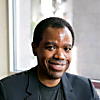



Luminary Interview with Coraline Ada Ehmke
As you grow as a technical leader, identifying career paths and opportunities can be difficult and you can easily get stuck without knowing what it takes to get you to the next level.
Luminary Interview with Coraline Ada Ehmke
As you grow as a technical leader, identifying career paths and opportunities can be difficult and you can easily get stuck without knowing what it takes to get you to the next level. So as a Senior IC, how do you get here? What is the job like? How do you map your career map?

Coraline Ada Ehmke is an internationally recognized speaker, writer, activist, and software engineer with over 25 years of industry experience. In 2014 Coraline created the Contributor Covenant, the first and most widely adopted open source code of conduct in the world. She was recognized for her work in diversity and equity in open source with a Ruby Hero award in 2016. In 2018, Coraline addressed the United Nations Forum on Business and Human Rights on the topic of human rights abuses in the tech industry. In 2019 she created the Hippocratic License, founded the Ethical Source Movement, and established the Ethical Source Working Group.
View Coraline's LeadDev articles and talks
Blanca Garcia Gil is an independent data consultant. For the last 8 years she has worked across the data stack, most recently setting up the analytics platform at fintech startup topi. She honed her skills diving into scaling issues within the BBC’s Data Platform team as principal engineer. In her free time, she loves travelling, reading, swimming, and cooking. She enjoys learning new hobbies such as clothes making, drawing or languages. She grew up in Spain and has also lived in the United States and Australia. She currently lives in London, UK.
View Blanca's LeadDev articles and talksFeaturing:



So you're Staff+ ... now what?
This talk will cover how to define your development journey as a Senior IC, figuring out what you should be working on, how to set your goals, and keep track of your progress.
So you're Staff+ ... now what?
This talk will cover how to define your development journey as a Senior IC, figuring out what you should be working on, how to set your goals, and keep track of your progress.

Sabrina moved to London from Brazil and since then has worked as an engineer and leader for a number of companies, most recently Intercom as a principal product engineer. She enjoys working in cross-functional teams developing useful and delightful products, while maintaining long-lived and healthy codebases. Sabrina has helped shape the product development process at a number of companies and is always looking for new and better ways to work together.
View Sabrina's LeadDev articles and talksFeaturing:


Wrap up
That's a wrap!
WELCOME
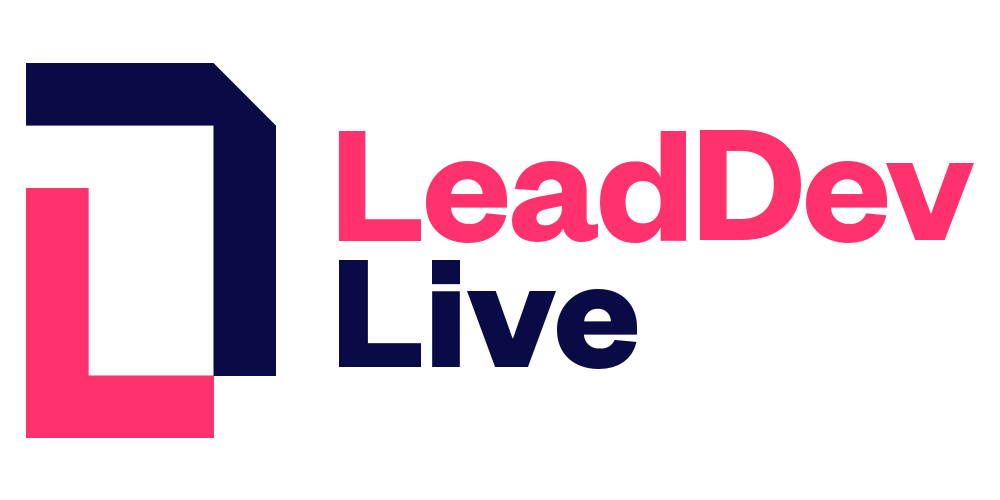

Welcome to LeadDev Live
A welcome to the LeadDev Live track (sponsored by Circle CI), from your hosts Anjuan Simmons and Danielle Leong.
Seeking and receiving feedback as an engineering leader
In this panel, we’ll explore how engineering leaders can actively seek and receive feedback, and how to interpret feedback to steer self-improvement.
Seeking and receiving feedback as an engineering leader
As an engineering leader, your feedback loops become longer, meaning it's harder to evaluate your own performance and identify areas for improvement. It can also be difficult for engineering managers to receive information on their own performance, as it’s difficult for people to give negative feedback to their boss.
So how can you create a space where feedback can be given safely? In this panel, we’ll explore how engineering leaders can actively seek and receive feedback, and how to interpret feedback to steer self-improvement.
.png)
Jackie is a product manager at Driver's Seat building tools for gig workers. Before that, she worked as a software engineer for several years at companies like Square and Nylas. She lives in Brooklyn, where she hosts events, makes candles, cooks, writes occasionally, and reads a lot. She's working to build a democratically owned and organized tech industry.
View Jackie's LeadDev articles and talks
Marcel Weekes is currently a Senior Director of Engineering at Slack Technologies, Inc. He currently leads the Slack Connect engineering team and has previously managed teams of mobile and web developers at both startups and large media companies. He has a particular interest in building teams and finding product market fit.
View Marcel's LeadDev articles and talks
Sonal Mehta is a Director of Engineering at Intuit Mailchimp, where she leads multiple functions that deliver cohesive, differentiated experiences for prospects and customers, both internal and external. Servant leadership and mentoring are very important to Sonal and it has been a journey for her to understand the “why” behind them. She believes we help people be the best version of themselves one person at a time and everyone has a spark that is just waiting to be uncovered. This philosophy has enabled Sonal to build diverse teams who operate with high levels of trust and are high functioning with open communication and collaboration. On a personal side Sonal enjoys meeting people, good food, murder mysteries, both books and television, and is learning to play the Alto Sax.
View Sonal's LeadDev articles and talks
Amy Newell has been a software engineer since 1999, when she fell in love with a heapsort. She is Senior Director of Engineering at Wistia. She likes to talk about engineering management and the relationships between suffering, authenticity, and productivity in the workplace. She also writes poetry, does stand-up comedy, reads tarot, advocates for the mentally ill, and parents two teenagers. She likes boots, oysters, mezcal, and anti-fascists.
View Amy's LeadDev articles and talks
Sophie leads Measurement Engineering at Pinterest with overall responsibility for maintaining conversion visibility and proving the incremental value Pinterest brings to their advertising partners. Prior to Pinterest, she held multiple leadership roles within Amazon covering advertising, data privacy and entertainment in Europe and the United States. She currently resides in Seattle with her wife and menagerie of pets.
View Sophie 's LeadDev articles and talksFeaturing:
.png)








Don't bring a knife to a gun fight: selling the value of investment
This talk will help you understand and sell the value of investment work so that you can collaborate with non-engineers to get it prioritized.
Don't bring a knife to a gun fight: selling the value of investment
Engineers often complain that “we don’t do enough investment”. We leave code to rot over many years; accidents waiting to happen or mud that slows down our shipping speed.
Engineers go into battle with product managers, arguing for investment over new features, and we lose. Over and over again. And when you look at the different backgrounds and skill sets - perhaps that’s not surprising. As an ex-consultant myself, I can confirm that persuasion is the name of the game. And most engineers don’t get taught to persuade at all.
This isn’t sensible - unless the engineers are hugely over-estimating the benefit of doing the investment work, the organization isn’t making good choices. And the battle mentality is clearly counter-productive: driving barriers between two groups whose entire job description is about collaboration.
We need to fix this, and we can. This talk will help you understand and sell the value of investment work so that you can collaborate with non-engineers to get it prioritized.

Lisa started out as a consultant working with HMRC and then smart meters, before accidentally becoming a developer. She worked as a tech lead at GoCardless and has recently joined as employee #2 at incident.io, providing tooling to help your whole organization manage incidents better. She loves building stuff, but is also really interested in how people interact with each other in a work environment - particularly in software engineering. Having seen the 'old way' at Accenture (large-scale waterfall projects), she's now looking at taking the lessons from that environment to the start-up scene.
View Lisa's LeadDev articles and talksFeaturing:


Break - 15 minutes
Managing up for engineering leaders
Is managing up bad?
Managing up for engineering leaders
Is managing up bad?
What if you realize that your reports are managing you as well. The philosophy of “no one is perfect” gets applied to managers as well.
In this talk, I will share why it is a good practice to have. How you can manage up and build a healthy culture of being managed by your reports.

Garima is Senior Engineering Manager at Apple. Before becoming a manager, she spent most of her time in Site Reliability Engineering practices. She has experience in working in large enterprise companies, consulting and startup. She is passionate about building effective management processes and sharing it with wider community. In her free time, now a days, she is excited about blockchain and crypto currency.
View Garima 's LeadDev articles and talksFeaturing:

Crafting efficient on-call processes
In this panel, we’ll discuss the fundamentals of an effective on-call process - thinking about how to diagnose your current state, iterate and improve, and how to avoid mistakes along the way.
Crafting efficient on-call processes
On-call processes often come with some baggage. And that’s understandable - asking engineers to give up their weekends, evenings, and early mornings isn’t the most thrilling of prospects. At worst, on-call can lead to demotivated teams and burnt-out individuals. So how can you create efficient (and even liked?) on-call processes? In this panel, we’ll discuss the fundamentals of an effective on-call process - thinking about how to diagnose your current state, iterate and improve, and how to avoid mistakes along the way.

Amanda is a San Francisco transplant from Denver, Colorado with a great love for coffee. She is a software engineer for BuildingConnected, which is a startup focused on connecting businesses in the preconstruction industry. She previously worked on the rentals team at Zillow. In her spare time she attends hackathons as a coach for Major League Hacking and does work for climate action advocacy groups. She enjoys writing, speaking, and obsessively reading about sharks.
View Amanda's LeadDev articles and talks
Jaime began his career as a molecular biologist, before working at DigitalOcean, Riot, and Shopify, where he launched the engineering communications function. He is an award-nominated writer whose work has focused on the intersection of technology and culture, and has been researching the incident response process in organizations for the past few years. He is an avid lover of dumplings.
View Jaime's LeadDev articles and talks
Phil has been leading software teams in their hyper-growth stages since the early 2000s. A pioneer in distributed applications and microservices, he built engineering at SoundCloud and scald-up DigitalOcean, Meetup, and SeatGeek. He recently started on a startup journey, building the AI Copilot for managers and leaders at Outropy.
View Phil's LeadDev articles and talks
Stevi Deter is a Principal Software Engineer at DexCare, where she works with her team to develop a Platform-as-a-Service (PaaS) that intelligently orchestrates health system capacity and digital demand across all lines of care. She has over 20 years of experience in a wide range of industries. She has focused on integrating complex systems to provide new tools and experiences to serve customer needs.
View Stevi's LeadDev articles and talks
Ricardo currently works at Rakuten as a Site Reliability Engineering Manager helping automate everything with cloud native technologies. He's an open source enthusiast and co-chair of the CNCF TAG-Runtime. He has been working in tech for more than 20 years and comes from a diverse professional background, having been in different roles at large companies such as Cisco and VMware as well as startups such as Coupa, Hytrust, Exablox, and SnapLogic. Most recently he was at Branch Metrics where he spent 2 years working on automating their cloud infrastructure to handle millions of requests and petabytes of data on a daily basis.
View Ricardo's LeadDev articles and talksFeaturing:








Eight timezones, one cohesive team
Leading a globally distributed engineering department that spans eight different timezones is no walk in the park. It takes a lot of effort and intention to make it all work.
Eight timezones, one cohesive team
Leading a globally distributed engineering department that spans eight different timezones is no walk in the park. It takes a lot of effort and intention to make it all work. With this talk, I want to share some of the strategies we use to help make this globally distributed team successful and still feel like a cohesive unit.
One practice we lean on is async stand-up posts. I publish a weekly internal blog post on Sunday evening (Monday morning for our Thailand folks). The body of the post contains my updates for the department and then engineers leave their status updates in the comments.
While async standup posts are great, the team still needs face time with each other. We do this via weekly roundtables. These roundtables are optional one-hour long zoom calls that occur on a four-week rotating schedule to accommodate all of our different timezones.
During the roundtables, the team can chat about anything that is on their minds. We record these roundtables and I take notes. After the roundtable is over, I post the recording and the notes so anyone who could not attend can catch up on what was discussed.
Finally, to make a distributed team work well your culture has to be async first. To start, set the expectation that PRs and Issues should be open for at least 24 hrs for review to allow all team members a chance to weigh in. Treat Slack as an async tool and not a synchronous one. When you do this, folks become a lot more thoughtful in their written communication. People begin to think and plan ahead better. The stress of walking away from your computer during the day completely goes away. Lastly, record your meetings so folks never feel left out because they can always catch up with the recording later.
.png)
Molly Struve is a Sr. Site Reliability Engineer at Netflix. She is passionate about building reliable, scalable software and teams. Every day she strives to lead by example and empower those around her by sharing all that she has learned from her time in the industry. When she is not wrangling code or servers, she can be found riding and jumping her show horses.
View Molly's LeadDev articles and talksFeaturing:
.png)

Break - 30 mins
Down with the "Boss"
As a manager and senior leader, this talk will give you a good high-level outline of different areas of growth that should be on every manager's career development framework.
Down with the "Boss"
Whether you are new to the engineering manager role or a director who has years of experience, there is always an opportunity to grow your skills and improve your effectiveness. As managers, it may seem like there is so much we are responsible for but rarely do we get the feedback on which are the top responsibilities and skills we should focus on. It’s hard to prioritize when everything is important.
But to be an effective engineering manager, director, and VP, you need to tie the work you do to the most impact for the organization.
In this talk, we’ll cover:
- A quick overview of a career track for managers and individual contributors
- 3 key skills every manager, director, and VP need to focus on
- Pitfalls that you can learn to avoid in order to build the most effective teams
- Effective tools for distributed teams
As a manager and senior leader, this talk will give you a good high-level outline of different areas of growth that should be on every manager's career development framework. These key skills are paramount to your personal success as a manager and to your team’s success toward achieving the company goals.

Dalia is the VP of Engineering at Replicated and prior to this role was the VP of Engineering at Netlify and Director of Engineering at GitLab. Dalia is passionate about helping companies grow their engineering teams, build frameworks to support their growth and drive the adoption of healthy operations. Dalia believes that a leader is there to support their team and should seek out ways to improve the quality of life for their engineers. When not immersing herself in leadership topics, Dalia loves the outdoors and spending as much time with her 2 little ones.
View Dalia's LeadDev articles and talksFeaturing:


Holding effective coaching conversations
Explore how to hold effective coaching conversations as leaders.
Holding effective coaching conversations
Coaching is a skill that’s often talked about when we discuss growing our teams, and like any skill, coaching requires intentional thought and practice. However, leaders aren’t often trained in honing their coaching tactics - which can leave some people to feel unsure of how to hold effective coaching conversations.
In this panel, we’ll explore how to hold effective coaching conversations as leaders - thinking about strategies for understanding what the other person is saying, actively listening, and how to ask the correct kinds of questions.

Nik has spent the past 20 years leading various tech teams and her experiences have led her to conclude that technology is all about solving ‘people’ problems. Her greatest source of work-related joy is helping people and teams in tech achieve more than they think is possible. She unwinds by applying the 'fail fast' principle to yoga, child-rearing, and karaoke.
View Nik's LeadDev articles and talks
Phillipa is an experienced engineering manager passionate about people leadership and building great engineering cultures. Phillipa leads with empathy and trust; by demonstrating the importance of building relationships and coaching others to realise their full potential, she empowers engineers to bring their best selves to the workplace, promotes best practices and encourages excellence across teams to build the best products.
View Phillipa's LeadDev articles and talks
Jessy (she/her/hers) is a French Berlin-based Engineering Manager, with more than 10 years of international experience in Engineering and Software Quality Assurance. A strong believer in Diversity, Inclusion, Equity and Belonging, she now uses her experience to help engineering teams grow, be empowered and at the image of our society. She believes in the power of representation, and in centering entrepreneurship around solving people's problems. She is also mentor at ReDI School, a non-profit tech school for locals and newcomers without access to digital education, and at WomenTech. She is passionate about lifting up others and opening opportunities to underrepresented and under-served groups in Tech. Feminist, anti-racism activist, and mental health advocate, she tries to make this world a better place. When she is not working for her social conscious company, she spends her free time between her passion for dance, aerial art and her activities for humanitarian associations.
View Jessy's LeadDev articles and talksFeaturing:





Sturgeon’s Biases: how communities of practice lie to themselves & everybody else
In this talk, I'll explore these problems through the lens of Sturgeon’s Revelation usually stated as “ninety percent of everything is crud”!
Sturgeon’s Biases: how communities of practice lie to themselves & everybody else
As a technical leader do you have problems with different disciplines and communities of practice within your organization? Do you find misconceptions about what different groups can do getting in the way of achieving your objectives?
In this talk, I'll explore these problems through the lens of Sturgeon’s Revelation usually stated as “ninety percent of everything is crap”!
In a career, it's surprisingly easy for a good developer to have only worked with bad product people. Or a good product manager to have only worked with bad UX people. Or a good UX Designer to have only worked with bad developers. And so on.
Each of those people builds generalizations based on their experiences. Creating coping mechanisms for those generalizations that start being counter-productive when they finally get to work with good people. You'll see how easy it is for people inside and outside of a discipline to have radically different experiences of its competencies. We'll work through some options to help break down those misconceptions — so we can create happier, more empathic, teams!

Adrian helps build successful teams and great products. Working with companies of all sizes he combines coaching & teaching with hands on UX & development work. With more than 25 years experience working as a developer, UX practitioner, team lead & coach you'll find him ranting in the bar about how agile, product and UX folk need to play nice together. Be kind and buy him whisky.
View Adrian's LeadDev articles and talksFeaturing:


Break - 15 minutes

Cultivating effective cross-functional relationships
In this panel, we’ll explore how engineering departments can form strong relationships with other teams.
Cultivating effective cross-functional relationships
For any engineering department to be truly effective, strong cross-functional relationships must be developed with other departments. And while vital, forming relationships with product, design, marketing, sales, customer support, etc, can bring all kinds of unforeseen challenges. In this panel, we’ll explore how engineering departments can form strong relationships with other teams. We’ll discuss how to articulate and communicate engineering’s priorities and concerns, how to understand the perspectives of other departments, and how to avoid common mistakes when collaborating with other departments.
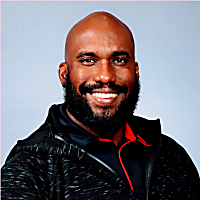
Anjuan Simmons is a technologist with a successful track record of delivering technology solutions from the user interface to the database. He is an energetic and informative speaker who presents at conferences, seminars, schools, and community centers around the world on topics including Agile software development, diversity, and leadership. Anjuan has an undergraduate degree in electrical engineering from the University of Texas at Austin and an MBA from Texas A and M University.
View Anjuan's LeadDev articles and talks
Charles is an engineering leader passionate about striving for simplicity and elegant product designs, while developing self-sustaining systems and autonomous teams. He believes in People > Technology and Experiences > Material Things.
View Charles's LeadDev articles and talks
Brad is a hands-on, mission-driven engineering leader who has lead teams across a variety of industries including healthcare, accessibility, gaming, men’s fashion, pets, power tools and payments. Prior to serving as Senior Director of Engineering at Marqeta, he helped bring Shaper, the world’s first computer-guided handheld power tool, and Whistle, a health and location tracking wearable for dogs and cats, to market.
View Brad's LeadDev articles and talks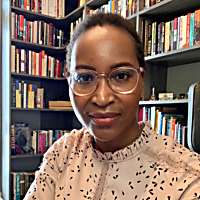
Nivia is a technologist with over 20 years of engineering and leadership experience.Her career has spanned nearly every role in tech; but her true passion is inspiring people to do their best work.These days Nivia plies her trade as a Director of Engineering for Netflix’s Growth Experiences organization; where is leading the product experiences that power Netflix’s acquisition, growth, plans and payments ecosystems.Prior to that, Nivia spent almost 8 years as an Engineer Director across multiple organizations within Spotify.Nivia gives back to the tech community by speaking at, chairing and attending tech conferences.Her hobbies include: mentoring under-represented engineering leaders; reading; traveling; and enjoying life with her husband André, a fellow engineering leader; and their feline overlord Zuko.You can find her on LinkedIn.
View Nivia's LeadDev articles and talks
Blake is the Director of Engineering for Growth and Data at CircleCI, working remotely out of his home in Longmont, CO. He’s a product engineering focused leader, working with teams supporting CircleCI’s user journey and customer data needs. Outside of work, he’s a husband and a dad, an avid amateur photographer, a serious car nut, and spends what little free time he has left playing as many video games as possible.
View Blake's LeadDev articles and talksFeaturing:










Sculpting data for machine learning
In the contemporary world of machine learning algorithms - data is the new oil
Sculpting data for machine learning
In the contemporary world of machine learning algorithms - data is the new oil. For the state-of-the-art ML algorithms to work their magic it's important to lay a strong foundation with access to relevant data. Volumes of crude data are available on the web nowadays, and all we need are the skills to identify and extract meaningful datasets. This talk aims to present the power of the most fundamental aspect of Machine Learning - Dataset Curation, which often does not get its due limelight. It will also walk the audience through the process of constructing good quality datasets as done in formal settings with a simple hands-on Pythonic example. The goal is to institute the importance of data, especially in its worthy format, and the spell it casts on fabricating smart learning algorithms.

Jigyasa Grover is a Machine Learning Engineer at Twitter, Inc and co-author of the book "Sculpting Data for ML". She has a myriad of experiences from her brief stints at Facebook, Inc., National Research Council of Canada, and Institute of Research & Development France involving Data Science, mathematical modeling, and software engineering. Having graduated from the University of California, San Diego, with a Master’s degree in Computer Science with an Artificial Intelligence specialization, she is presently plying her past experiences and knowledge towards Applied Machine Learning in the online advertisements prediction and ranking domain. Red Hat ‘Women in Open Source’ Academic Award Winner and Google Summer of Code alumna, Jigyasa is an ardent open-source contributor as well. She served as the Director of Women Who Code and Lead of Women Techmakers for a handful of years to help bridge the gender gap in technology. In her quest to build a powerful community of girls and boys alike, and believing in “we rise by lifting others,” she mentors aspiring developers and Machine Learning enthusiasts in various global programs. She also has many international conference keynotes, technical talks, panels, workshops, blogs, and podcasts to her name. Apart from her technological ventures, she enjoys exploring new places, hanging out with friends and family, and has been recently having fun with baking. You can visit her online at jigyasa-grover.github.io or on Twitter (@jigyasa_grover).
View Jigyasa's LeadDev articles and talks
Rishabh Misra is a Machine Learning Engineer at Twitter, Inc and co-author of the book "Sculpting Data for ML". He developed a passion for identifying and tackling novel and practical problems using Machine Learning during his research internships at the Indian Institute of Technology Madras, which he further explored during his Master's in Computer Science from the University of California San Diego. He combines his past engineering experiences in designing large-scale systems, working at Amazon and Arcesium (a D.E. Shaw company), and research experiences in Applied Machine Learning to develop distributed Machine Learning relevance systems at Twitter. His explorations have also led to several research publications in competitive ML conferences like RecSys, ACL, and WSDM. The ML community has well received the datasets collected (also used in this book) as part of his research. Kaggle recently ranked him as one of the top 20 dataset contributors, and Deeplearning.ai's "Natural Language Processing in TensorFlow" course on Coursera used his Sarcasm Detection dataset for teaching purposes. In his downtime, he enjoys watching sci-fi shows, gaming, and spending time with his family. He presently lives in San Francisco, California, and you can visit him online at rishabhmisra.github.io or on Twitter (@rishabh_misra_).
View Rishabh's LeadDev articles and talksFeaturing:




Wrap up
That's a wrap!
WELCOME
Welcome to the conference
A welcome to the tech track

Growing your team's superpowers with CI/CD
In this talk we’ll cover the Whys, the Whats, and the Hows of setting up a CI/CD pipeline and making it work for us as we strive to ship better software, faster.
Growing your team's superpowers with CI/CD
Continuous Integration and Continuous Delivery/Deployment (CI/CD) concepts are increasingly adopted by many technology organizations and teams. CI/CD enables teams to establish processes that increase velocity, collaboration and quality of their codebase. CI/CD enables developer & operations teams to break down unnecessary silos and gain a deeper knowledge of their respective arenas, while focusing on the important things like shipping great software.
In this talk we’ll cover the Whys, the Whats, and the Hows of setting up a CI/CD pipeline and making it work for us as we strive to ship better software, faster.
We’ll finish the presentation with a hands-on demo of building a sample pipeline with CircleCI.

Zan Markan is a developer advocate at CircleCI, on a mission to educate and inspire developers on the topics of CI/CD, DevOps, and software quality. Across his career, he has worked in companies of various sizes, from enterprises to own startups, and everything in between, and across industries as diverse as retail, AI, and developer tools. He’s passionate about serverless technologies, mobile development, and developer experience. Outside of work, he enthuses over airplanes, craft beer, and the Oxford comma.
View Zan's LeadDev articles and talksFeaturing:



Start your Engineering Metrics Program with LinearB
We're going to show you the most important team-based metrics to track, how to identify workflow bottlenecks and proven tactics for improvement.
Start your Engineering Metrics Program with LinearB
We're going to show you the most important team-based metrics to track, how to identify workflow bottlenecks, and proven tactics for improvement.

Over the past decade I went from developer to VP of Engineering at Cloudlock (acquired by Cisco), and now I’m the co-founder and COO at LinearB. I’m obsessed with how dev teams work together. Like what makes great culture? And how can engineering leaders be data-driven without being performance tyrants? More importantly, my partner Lauren and I just had a beautiful baby girl named Leila. We recently moved to sunny Southern California which is a welcome change for this suburban boy from up-state New York.
View Dan's LeadDev articles and talksFeaturing:


Added to the List: How to build technical domain expertise
In this talk, we go over tips on how to land an opportunity that allows for technical domain exploration, how to efficiently learn from the experience, and how to utilize your new domain expertise for career growth.
Added to the List: How to build technical domain expertise
It can be daunting to look at job listings and see that you fulfill few or none of the preferred qualifications. "Sure, I'm a software engineer, I can pick up new languages, but I don't have '2+ years experience working in applied Machine Learning'."
In this talk, we go over tips on how to land an opportunity that allows for technical domain exploration, how to efficiently learn from the experience, and how to utilize your new domain expertise for career growth.

Hina Sakazaki is a Software Engineer at Google, working on NLU infrastructure at Google Cloud Dialogflow. Previously, Hina was the Tech Lead of the client infrastructure team at Zynga, a full-stack engineer at YouTube Trust & Safety, as well as a member of a five person research-to-product startup team within Google, working on ML for game developers. She enjoys picking up new skills and producing things, technology or otherwise, with always an emphasis on fun.
View Hina's LeadDev articles and talksFeaturing:


Break - 15 minutes

Developing a courier app in a leading food-tech company
Join us for our demo where Mert Kilic, Senior Software Developer at our Berlin Tech Hub, will give an introduction to our new restaurant courier app which we launched in February this year.
Developing a courier app in a leading food-tech company
Join us for our demo where Mert Kilic, Senior Software Developer at our Berlin Tech Hub, will give an introduction to our new restaurant courier app which we launched in February this year. He'll give some insights into the technical challenges of building a courier app, the technologies which we used to develop it, how we communicate throughout the infrastructure and present a live demo.

View Mert's LeadDev articles and talks
Featuring:



Introduction to Continuous Code Improvement
Join our solutions engineer to understand how we can help reduce deployment time and cost with an accuracy that you and your team can rely on.
Introduction to Continuous Code Improvement
Join our solutions engineer to understand how we can help reduce deployment time and cost with an accuracy that you and your team can rely on.

View Finbar's LeadDev articles and talks
Featuring:



Codility - Where the best engineering teams are built
Looking to hire a word-class engineering team faster without wasting engineering or recruiting time?
Codility - Where the best engineering teams are built
Looking to hire a word-class engineering team faster without wasting engineering or recruiting time? Join us as we show you how Codility can help engineering leaders predict the real-life skills of your candidates, fast-track high performers and hire twice as fast, giving your engineers more time to solve problems that matter.

View Marshall's LeadDev articles and talks
Featuring:



No more ad-hoc requests!* From data service to data product teams
In this talk, I'll walk through what it would take to achieve this for your organization. If you're a data or engineering leader and have struggled with managing internal work in progress of your data teams, this talk is for you.
No more ad-hoc requests!* From data service to data product teams
Data teams represent an organizational transformation for most companies. What problems do data folks solve? Do they work with engineering? Do they do R&D on the side until they prove their worth by building something truly valuable?
These are embarrassingly common questions for most companies, from small startups to large Fortune 500 corporations. In the absence of good answers, data teams are left at the mercy of a myriad of business requests. No roadmap, no direction. Just SQL.
Luckily, there is a way to turn data service organizations into an integral part of your business, while adding value with every single contribution, by shifting toward becoming a data product team. This implies listening to internal and external customers, and building tools that increase your company's operational efficiency and reduce the need for ad hoc queries.
In this talk, I'll walk through what it would take to achieve this for your organization. If you're a data or engineering leader and have struggled with managing internal work in progress of your data teams, this talk is for you.

Sebastián is a Data Science technical leader focused on building global data products. As a Sr. Manager of Data Science and Engineering at Shopify, he's focused in building the most comprehensive insights and analytics platform to improve commerce for over 1.7M merchants everywhere! In the past, Sebastian has built data teams from scratch at Phreesia, Pager and Aentropico. Sebastian has over a decade of experience using Data Science and Applied Machine Learning to solve real world business problems in industries such as Commerce, Healthcare, Finance and Mining.
View Sebastián's LeadDev articles and talksFeaturing:


Break - 30 mins

Instana's approach to observability
This demo will cover Instana's observability platform and automated Application Performance Monitoring (APM) solution, designed specifically for the challenges of managing microservice and cloud-native applications.
Instana's approach to observability
This demo will cover Instana's observability platform and automated Application Performance Monitoring (APM) solution, designed specifically for the challenges of managing microservice and cloud native applications. It will cover how the system can help improve your uptime and give you better visibility into the workings of your system.

View Justin's LeadDev articles and talks
Featuring:



Building a scalable, automated network management system for thousands of independent nodes
The Marco Polo Network is the largest trade finance network in the world. The network spans 60+ regions and 140 countries in the Microsoft Azure cloud.
Building a scalable, automated network management system for thousands of independent nodes
The Marco Polo Network is the largest trade finance network in the world. The network spans 60+ regions and 140 countries in the Microsoft Azure cloud. The network needs to support the secure operation of hundreds of thousands of independent nodes and prevent the leakage of node-specific information.
The Marco Polo Network Management System (NMS) was built to support the vast network in a scalable and automated fashion. Marco Polo NMS automates end-to-end processes, monitors network activity and alerts on platform, data center, and cluster health.

View Shane's LeadDev articles and talks
Featuring:


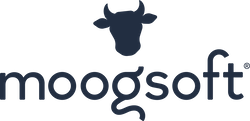
Turning observability data into action
Reduce noise, conquer alert fatigue, and deliver a seamless customer experience with Moogsoft.
Turning observability data into action
See Moogsoft in Action Join us for a live demo on how we can help you reduce noise, conquer alert fatigue and deliver a seamless customer experience. With Moogsoft, you don’t just observe. You get to turn data into action!

View Park 's LeadDev articles and talks
Featuring:


Collaborative debugging on engineering teams
Teams that write code together should be able to debug issues together. But while we think a lot about engineering collaboratively, we rarely develop processes for debugging collaboratively.
Collaborative debugging on engineering teams
Teams that write code together should be able to debug issues together. But while we think a lot about engineering collaboratively, we rarely develop processes for debugging collaboratively. Often, debugging is the hardest part of the job. What does an engineer do when the logs have expired, she can’t reproduce the issue, and she's tested five different hypotheses? I’ll talk about a workflow that allows teams to collaboratively debug issues without repeating work or losing progress and why it makes sense.
.png)
Jackie is a product manager at Driver's Seat building tools for gig workers. Before that, she worked as a software engineer for several years at companies like Square and Nylas. She lives in Brooklyn, where she hosts events, makes candles, cooks, writes occasionally, and reads a lot. She's working to build a democratically owned and organized tech industry.
View Jackie's LeadDev articles and talksFeaturing:
.png)

Break - 15 minutes
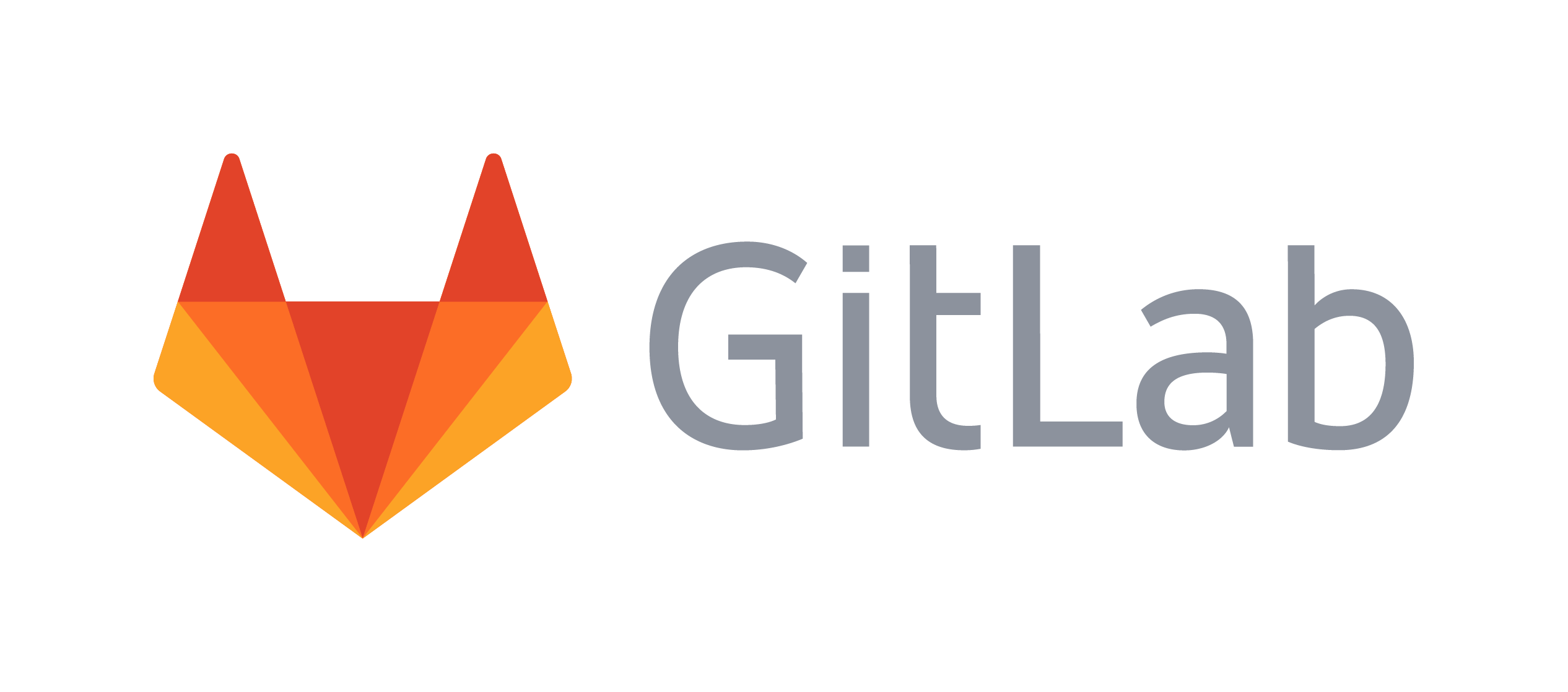
Integer overflows, bad UX, and other ways to waste $870 million
Learn how a DevSecOps mentality is intended to overcome the biases we have for simplicity in our human model of complex systems.
Integer overflows, bad UX, and other ways to waste $870 million
I've had some bad days in my career — production outages, customer emergencies, escalations, you name it. But to be fair, I've never cost my employer $500 million because of poor UX or accidentally lost a $370 million piece of equipment because of an integer overflow.
While not all errors that we make are nearly this noticeable or catastrophic, we can learn from these notable mistakes how making human assumptions about the complex systems we create can lead to unintended consequences in the real world.
In this talk, we discuss both of these incidents - one highly technical and the other highly human and UX driven - to understand how a DevSecOps mentality is intended to overcome the biases we have for simplicity in our human model of complex systems. Lastly, we'll examine real-world solutions to automated testing and reasoning about how our modern, complex, distributed systems behave in the real world.

Brendan O'Leary is a Senior Developer Evangelist for GitLab who connects with developers, contributes to open source projects, and shares his work with about cutting-edge technologies on conference panels, meetups, in contributed articles and on blogs.
View Brendan's LeadDev articles and talksFeaturing:


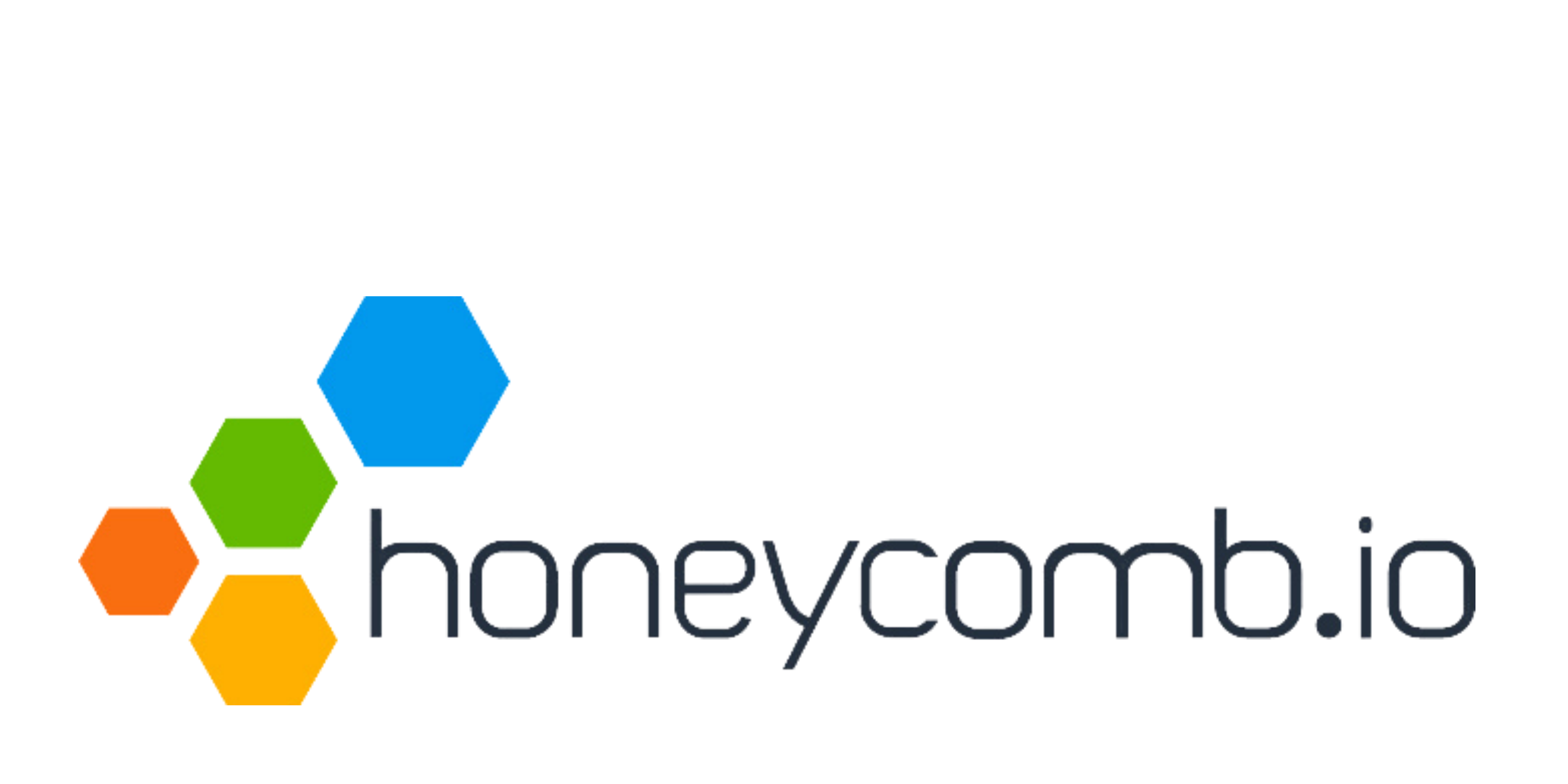
Observability with actionable insights
You may have heard the hype; now see it in action. With Honeycomb, modern dev teams build and operate resilient, reliable systems because they can clearly understand them.
Observability with actionable insights
You may have heard the hype; now see it in action. With Honeycomb, modern dev teams build and operate resilient, reliable systems because they can clearly understand them. Running queries and getting results fast should be table stakes. Ask any question and get results fast, no matter how many fields, without writing new code. Reduce toil and delight your users.

View Adam's LeadDev articles and talks
Featuring:


Wrap up
That's a wrap!
Welcome to LeadDev Together
Welcome to LeadDev Together
Welcome to LeadDev Together

